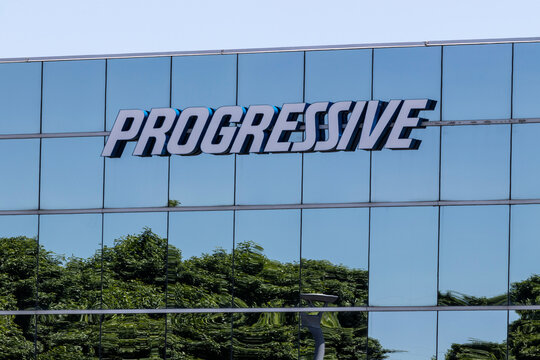Did you know that the U.S. property and casualty insurance market is projected to reach a staggering $1.8 trillion by 2026? With such a massive industry, it’s no wonder that Progressive faces stiff competition from numerous insurance giants. In this comprehensive guide, we’ll dive into the top 10 competitors giving Progressive a run for its money in 2024. Whether you’re shopping for auto, home, or commercial insurance, understanding the key players in the market can help you make the best choice for your needs. Let’s explore the insurance landscape and see how Progressive’s rivals stack up!
Top Competitors of Progressive
1. State Farm

Website – https://www.statefarm.com/
When it comes to insurance behemoths, State Farm stands tall as the undisputed market leader. Founded in 1922, this mutual insurance company has grown to become the largest property and casualty insurer in the United States. As of 2024, State Farm commands an impressive market share, serving millions of customers across the country.
State Farm’s product portfolio is remarkably similar to Progressive’s, offering a wide range of insurance options including auto, home, life, and business coverage. However, State Farm distinguishes itself through its vast network of exclusive agents, providing personalized service that many customers value highly.
One of State Farm’s unique selling points is its “Good Neighbor” ethos, which emphasizes community involvement and personalized customer service. This approach has helped State Farm maintain high customer satisfaction ratings, often outperforming Progressive in this area according to J.D. Power studies.
2. Geico
Website – https://www.geico.com/
Geico, an acronym for Government Employees Insurance Company, has transformed from a niche insurer to one of Progressive’s most formidable competitors. Founded in 1936, Geico has experienced explosive growth in recent years, largely due to its aggressive marketing strategies and focus on providing low-cost insurance options.
Geico’s marketing approach stands in stark contrast to Progressive’s. While Progressive has long relied on its quirky spokesperson Flo and witty commercials, Geico has captured attention with its memorable gecko mascot and the catchy slogan “15 minutes could save you 15% or more on car insurance.” This marketing prowess has helped Geico rapidly expand its customer base.
In terms of pricing, Geico often positions itself as the budget-friendly alternative to Progressive. The company’s direct-to-consumer model, which cuts out the middleman, allows it to offer competitive rates. However, this approach also means that Geico doesn’t provide the same level of personalized service that some customers might receive from Progressive’s network of independent agents.
3. Allstate
Website – https://www.allstate.com/
Allstate, with its reassuring slogan “You’re in good hands,” has been a major player in the insurance industry since 1931. The company has built a strong brand around the idea of protection and security, often positioning itself as a more premium option compared to Progressive.
When it comes to digital tools and apps, both Allstate and Progressive have made significant investments. Progressive’s Name Your Price® tool and Snapshot® program have been industry-leading innovations. However, Allstate has responded with its own suite of digital offerings, including the Drivewise® mobile app for usage-based insurance and the QuickFoto Claim® feature for easy claims filing.
Allstate has historically excelled in customer loyalty programs, with its Allstate Rewards program offering points for safe driving and policy renewals. While Progressive has its own loyalty initiatives, Allstate’s program is often cited as one of the most comprehensive in the industry, potentially giving it an edge in customer retention.
4. Liberty Mutual
Website – https://www.libertymutual.com/
Liberty Mutual has carved out a niche for itself as the insurer that offers highly customizable policies. Their tagline “Only pay for what you need” directly challenges the one-size-fits-all approach that some insurers take.
When comparing Liberty Mutual to Progressive in terms of coverage customization, both companies offer flexibility. However, Liberty Mutual has made this a central part of its brand identity. Their “build your own policy” approach allows customers to add or remove coverage options with granularity that often exceeds what Progressive offers.
In terms of claims handling, both companies have invested heavily in streamlining the process. Progressive’s mobile app and concierge claims service have set high standards in the industry. Liberty Mutual, not to be outdone, has introduced features like real-time claims tracking and a network of guaranteed repair shops to enhance the customer experience during the often stressful claims process.
5. Farmers Insurance
Website – https://www.farmers.com/
Farmers Insurance sets itself apart with its strong focus on customer education and risk management. Their “We Know From Experience” ad campaign, featuring quirky insurance scenarios, has become a hallmark of their brand identity.
While Progressive relies heavily on its direct-to-consumer model and independent agents, Farmers maintains a robust network of captive agents. These agents are often deeply embedded in their local communities, providing a level of personalized service and education that can be challenging for Progressive to match in some markets.
In the realm of commercial insurance, both Progressive and Farmers offer comprehensive solutions for businesses. However, Farmers has developed a reputation for its industry-specific expertise, offering tailored packages for niche markets that sometimes go beyond Progressive’s more generalized approach to commercial coverage.
6. Nationwide
Website – https://www.nationwide.com/
Nationwide’s diverse product portfolio extends well beyond auto insurance, potentially giving it an edge over Progressive in markets where customers are looking to bundle multiple types of coverage. From pet insurance to identity theft protection, Nationwide offers a wide array of products that can appeal to customers looking for a one-stop insurance shop.
When it comes to financial stability, both Progressive and Nationwide boast strong ratings from major credit rating agencies. However, Nationwide’s mutual company structure (owned by policyholders rather than shareholders) is sometimes seen as an advantage, as it allows the company to focus on long-term stability rather than short-term profits.
Both companies offer attractive bundling discounts, but Nationwide’s “Vanishing Deductible” feature – which reduces a customer’s deductible over time for safe driving – provides a unique savings opportunity that Progressive doesn’t directly match.
7. USAA
Website – https://www.usaa.com/
USAA (United Services Automobile Association) occupies a unique position in the insurance market with its exclusive focus on military members and their families. While this niche approach limits its total market share, it allows USAA to offer highly specialized services tailored to the unique needs of military personnel.
In customer service ratings, USAA consistently ranks at the top of the industry, often outperforming Progressive and other major insurers. The company’s deep understanding of military life and the challenges faced by service members translates into highly empathetic and effective customer support.
Both USAA and Progressive have been at the forefront of usage-based insurance programs. Progressive’s Snapshot program was one of the first widely adopted telematics-based insurance options. USAA’s SafePilot program offers a similar service, using smartphone apps to monitor driving behavior and offer discounts for safe driving habits.
8. Travelers
Website – https://www.travelers.com/
Travelers has built a formidable reputation in the commercial insurance sector, often outshining Progressive in this arena. With a history dating back to 1864, Travelers has developed deep expertise in business insurance, offering specialized coverage for a wide range of industries.
When comparing small business offerings, both Progressive and Travelers provide comprehensive packages. However, Travelers often edges out with its industry-specific programs and risk management services tailored for small to medium-sized enterprises.
In terms of risk assessment and underwriting, Travelers is known for its sophisticated models and data analytics capabilities. While Progressive has made significant strides in this area, particularly in auto insurance, Travelers’ long history in commercial lines gives it a wealth of data and experience that’s hard to match.
9. American Family Insurance
Website – https://www.amfam.com/
American Family Insurance, often known as AmFam, has built a strong presence in specific regions of the United States. While not a national powerhouse like Progressive, AmFam’s focused approach allows it to deeply understand and cater to the needs of customers in its core markets.
Both Progressive and American Family Insurance have made community involvement a priority, but AmFam’s regional focus often allows for more targeted and impactful local initiatives. This community-centric approach can create strong brand loyalty in the regions where AmFam operates.
When it comes to innovation and technology adoption, Progressive has often been an industry leader, particularly in the realm of usage-based insurance and digital tools. However, AmFam has been quick to adopt new technologies as well, with initiatives like their DreamKeep Rewards program, which uses IoT devices to offer discounts on homeowners insurance.
10. The Hartford
Website – https://www.thehartford.com/
The Hartford has carved out a unique position in the insurance market through its partnership with AARP, giving it preferred access to the growing market of drivers over 50. This strategic alliance allows The Hartford to offer specially designed policies that cater to the needs of mature drivers, potentially giving it an edge over Progressive in this demographic.
Both Progressive and The Hartford offer specific programs for older drivers, but The Hartford’s AARP-branded policies often come with unique features like RecoverCare, which provides assistance with daily tasks after an auto accident.
In terms of claims satisfaction, both companies generally receive positive ratings. However, The Hartford’s focus on the AARP demographic has led to the development of claims processes that are particularly well-suited to the needs and preferences of older customers, potentially giving it an edge in this specific market segment.
Conclusion..
As we’ve seen, the insurance landscape is fiercely competitive, with each of Progressive’s rivals bringing unique strengths to the table. From State Farm’s industry dominance to Geico’s cost-cutting prowess, and from USAA’s niche focus to The Hartford’s strategic partnerships, there’s no shortage of options for consumers.
While Progressive continues to innovate with its usage-based insurance and digital tools, its competitors are hot on its heels, constantly evolving their offerings to meet changing customer needs. As you shop for insurance, remember that the best provider for you will depend on your individual circumstances, coverage needs, and personal preferences.
Don’t hesitate to compare quotes, read customer reviews, and take advantage of free consultations. After all, in this dynamic insurance market, being an informed consumer is your best policy!
Also Read: Top Palo Alto Networks Competitors: A Comprehensive Analysis
To read more content like this, subscribe to our newsletter
Go to the full page to view and submit the form.

